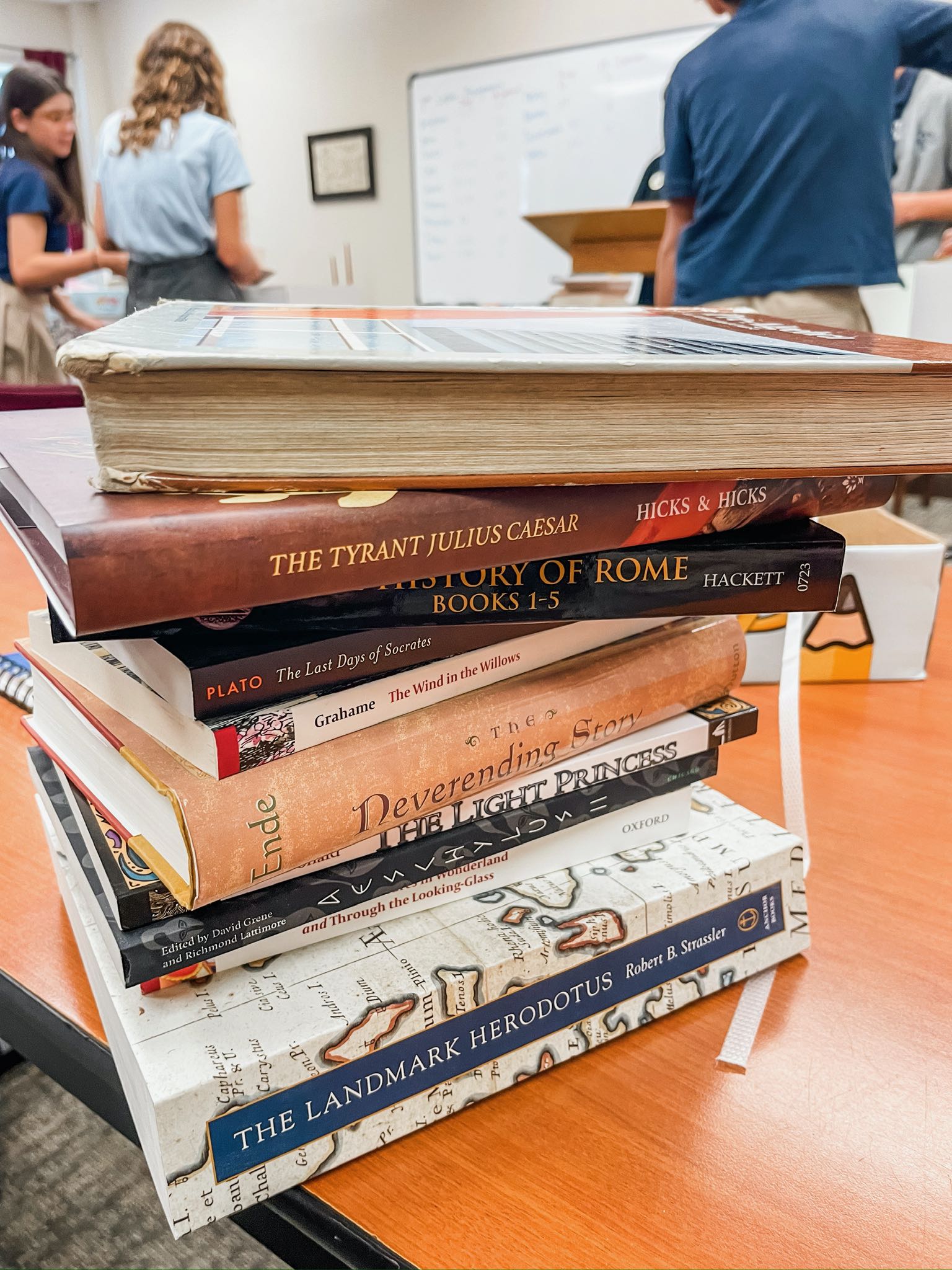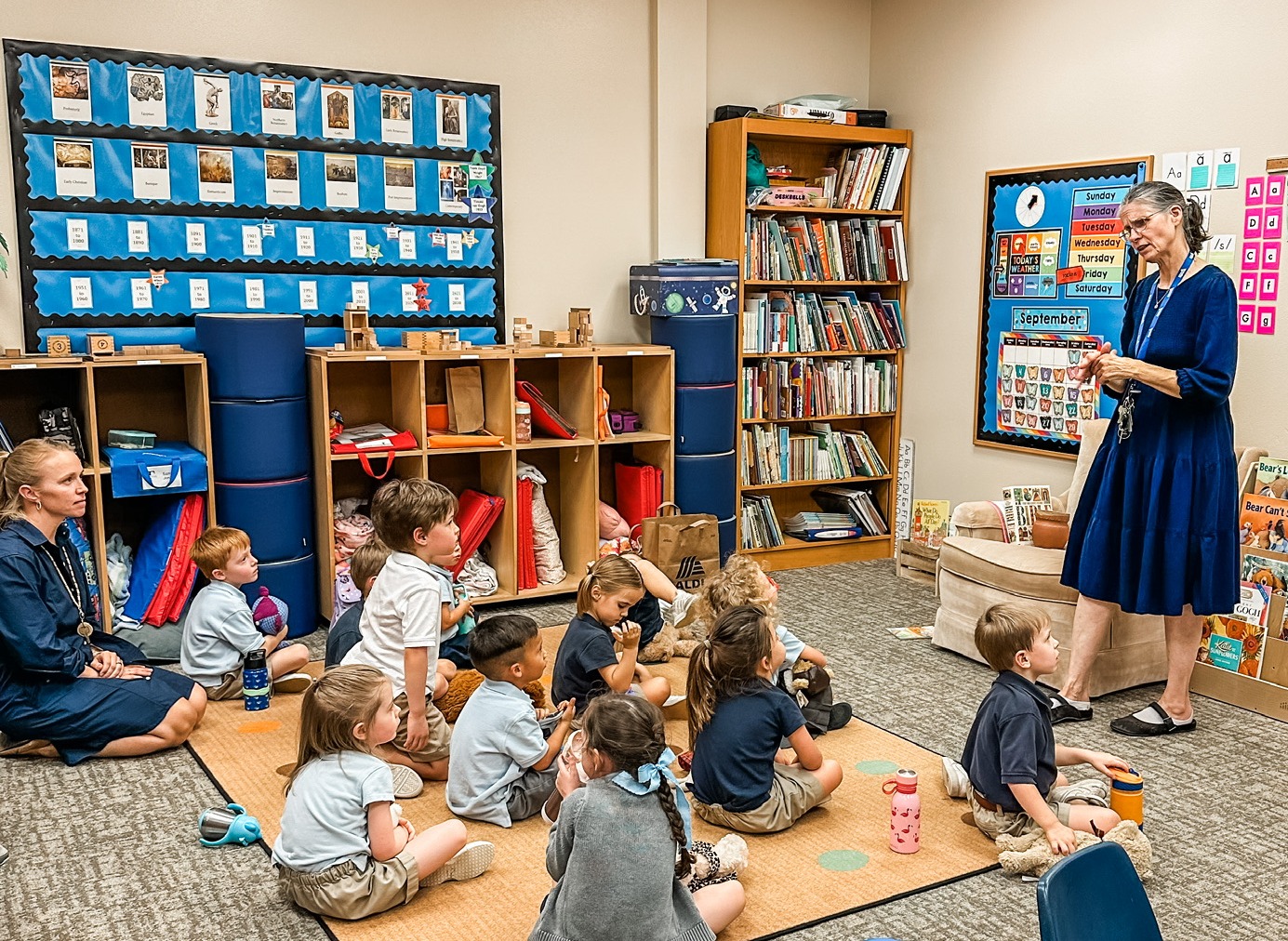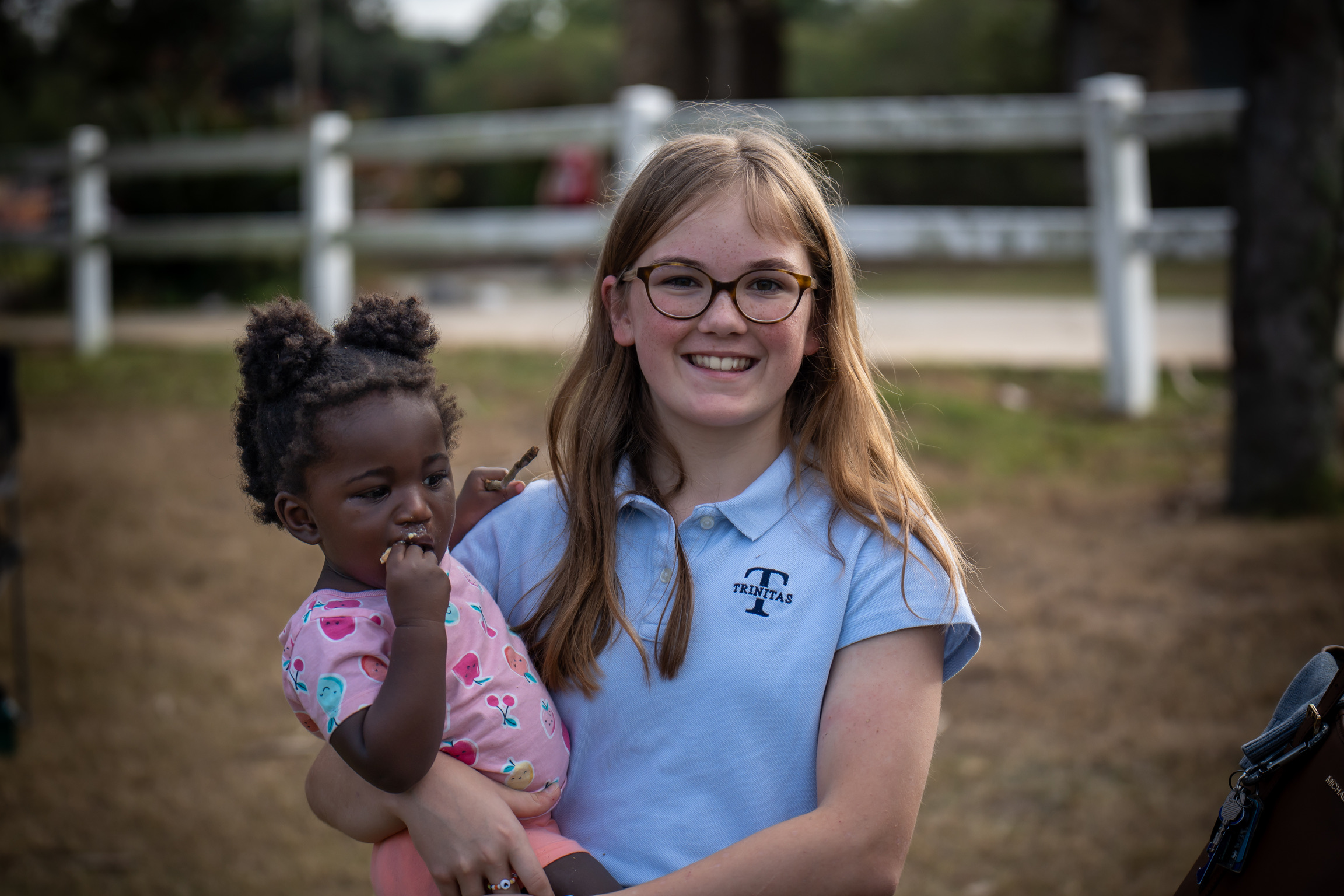At other times we have written here about the importance of the home, church, and school being in agreement, and it is a message that bears repeating. Those three entities have the most influence over a child’s formation. If the home, church, and school have different messages about who God is or who His people are or how they are called to live, a child’s mind will be divided on issues that are foundational to her existence. For a child to flourish spiritually and emotionally, hearing a consistent message from home, church, and school is necessary. By that same standard, a classical education cannot take root and flourish in the life of a child if it isn’t being supported at home.
Topics: Blog Posts, School Life, Parenting, Classical Education, Parent Involvement, Video Games, Reading, Truth, Goodness, and Beauty
Students, what is the chief end of Man? “Man’s chief end is to glorify God and to enjoy Him forever.” An elementary review, perhaps, but a foundational principle and reminder nonetheless. Now, who can tell me what is the chief end of education?
Turning to origins, ‘educare’ in Latin translates, ‘to train or to mold.’ This calls to mind how God created man–not the Westminster catechism answer this time but practically–He molded or formed him from the dust and declared him ‘good.’ After unlawfully partaking of the Tree of the Knowledge of Good and Evil, however, man no longer appealed to God as the sole source of Truth; man began to do what was right in his own eyes, as if he were omniscient, and not God. Measured in biblical chapters, it takes no time at all for the devastating effects of God “giving us over” to our deceitful hearts to manifest–just ask poor Abel.
Topics: Blog Posts, Classical Education, Christian Education, True Education, College Admissions, Truth, Goodness, and Beauty
The following is adapted from the Commencement Address delivered by Dr. Clifford Humphrey on May 17, 2024, at Trinitas Christian School.
Graduation, the word comes from the Latin verb graduari, meaning to take a gradus, a step. You have made it to the last step, the last rung on the ladder. It’s the end. It feels good, right? Like you can practically retire now and take it easy: this long race you’ve been running is over. But wait: this ceremony is also called commencement. What does that mean? Beginning. Why would we call this ceremony that? What might be beginning now?
Topics: Blog Posts, Classical Education, Alumni, Christian Education, True Education, Truth, Goodness, and Beauty, Virtue
Our junior and senior classes have just returned from twelve days in Greece and Italy. Some schools would call it a junior-senior trip; we call it the Classical Heritage Tour. On a Trinitas aesthetics trip the main mission is to discover beauty that we can’t discover at home. For twenty years, these trips were to New York City and Washington DC on alternating years, but now, for the first time, Trinitas students were able to travel abroad and experience the music, dance, art, architecture, and food that has been foundational to their classical education.
Topics: Blog Posts, School Life, Classical Education, Truth, Goodness, and Beauty, Aesthetics Trip
People come and people go. That is a truth in any community. It is human nature, I suppose to some extent, for people to get interested in a thing, even convinced about a thing, then lose interest or become unconvinced over time. Maybe we just have a short (and shortening) attention span. Because it is enrollment season, though, and families are deciding whether or not their children ought to attend Trinitas next year, I am spending a few weeks focusing on some of the top reasons people give for losing interest in and leaving Trinitas. This is the third of four such installments, and I hope you find it helpful if you are trying to make an enrollment decision.
#1 The standards are too high!
#2 Trinitas is weak on math!
Topics: Blog Posts, School Life, Classical Education, Alumni, True Education, College Admissions, Reading, Truth, Goodness, and Beauty, Admissions
A common defense for teaching Latin in schools hinges on the utility of the language. Arguments in this vein offer explanations such as: “Latin is the root of all other romance languages. Latin helps you think critically. Latin helps you understand inflected languages. Latin helps you understand grammar. Latin will help you understand English since there are so many derivatives.” These arguments are all true. Great as the number of these arguments is, very few apply exclusively to Latin, and those that do turn out to be weak anyway. I would like to suggest that we quit arguing for Latin based on its utility. My new thesis: Latin is useless; get over it.
Topics: Blog Posts, Classical Education, Classical Languages, Truth, Goodness, and Beauty
Last week, we shared ten practical tips for achieving enduring success and experiencing the wonderful fruit of classical Christian education at Trinitas, This week, we have ten MORE practical tips we've assembled from our teachers which we hope will benefit your family.
Topics: Blog Posts, School Life, Parenting, Classical Education, Scripture, Christian Education, True Education, Parent Involvement, Reading, Homework, Truth, Goodness, and Beauty, Virtue
The best things in life are often also the hardest things in life, and classical Christian education is no exception to this truism. To help Trinitas parents and students achieve enduring success at Trinitas and experience the wonderful fruit of classical Christian education, we've assembled these ten practical tips for success at Trinitas taken directly from our teachers. Simple, practical, but sometimes a bit pointed, we hope these steps are received in the spirit they are offered and are helpful to you.
Topics: Blog Posts, School Life, Parenting, Classical Education, Scripture, Christian Education, Christian Living, Parent Involvement, Homework, Truth, Goodness, and Beauty, Virtue

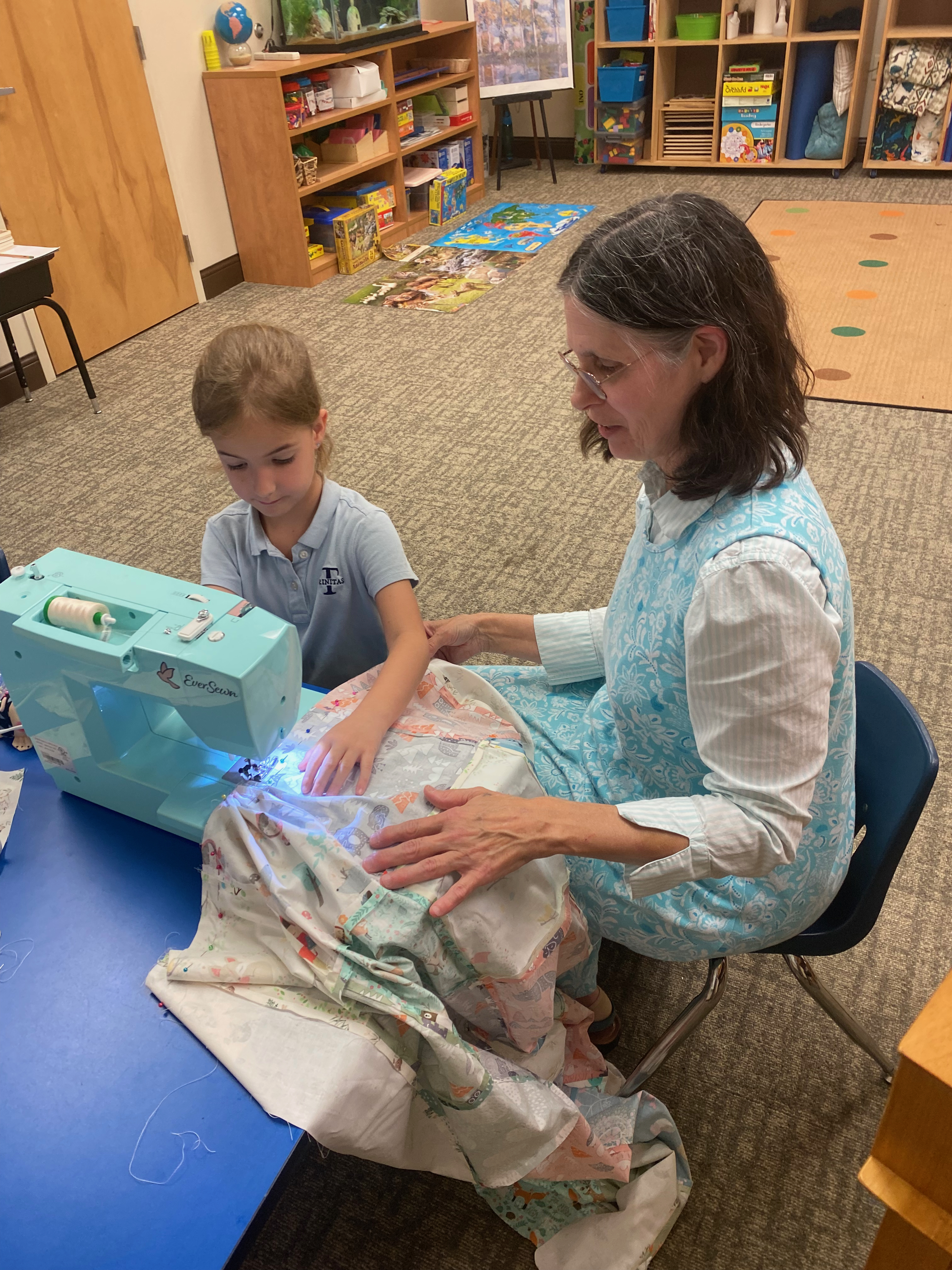
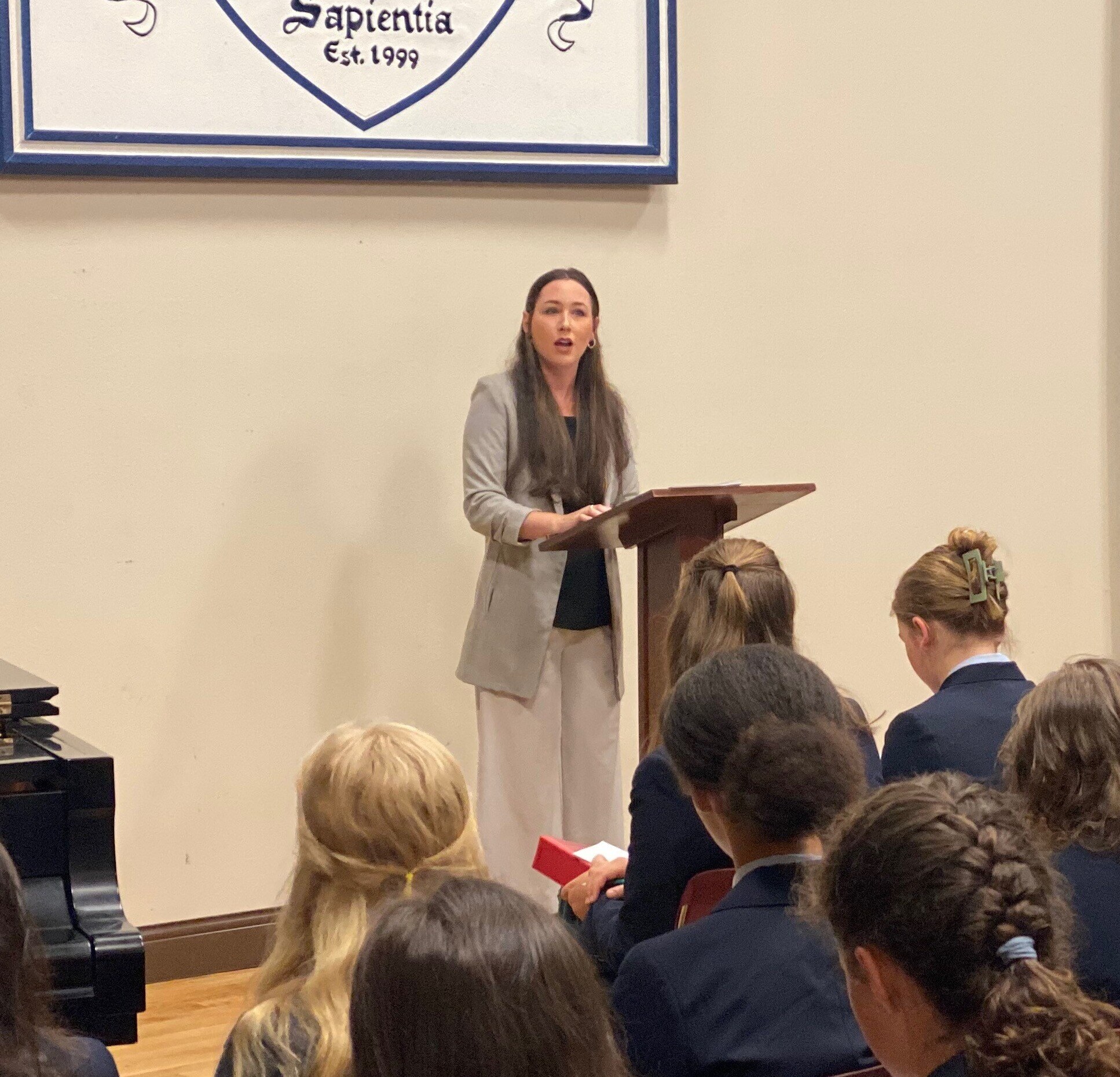
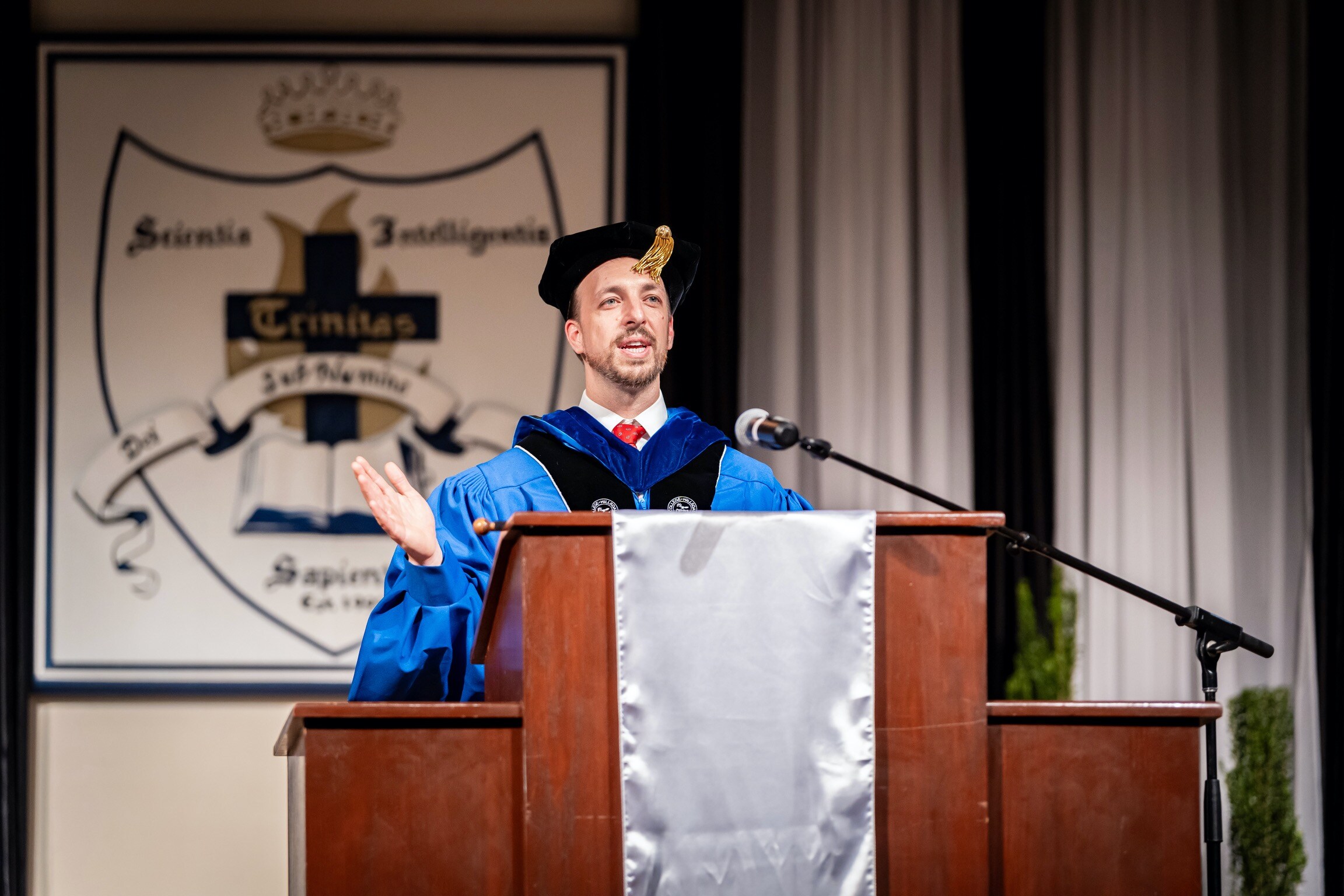
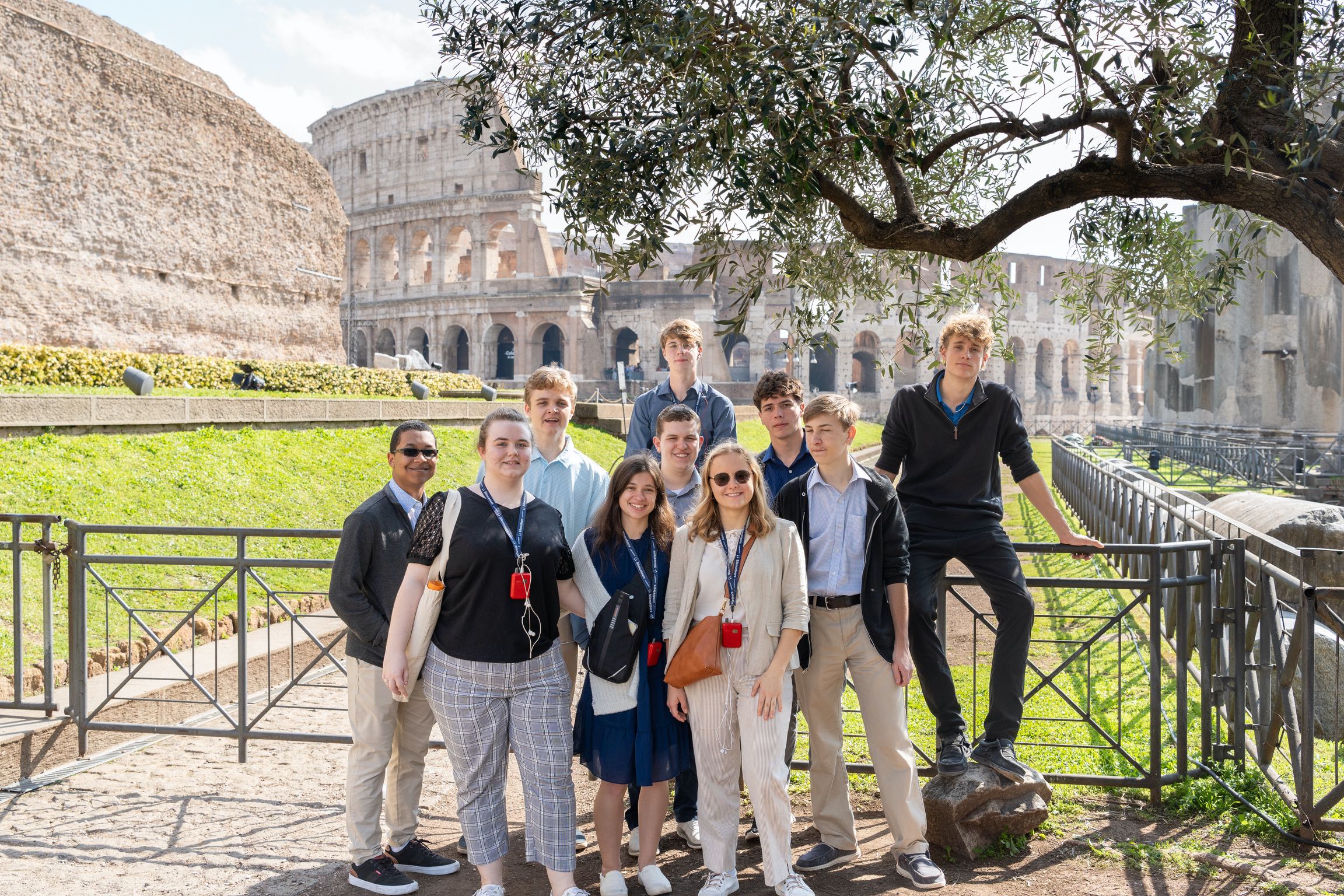
-1.png)
